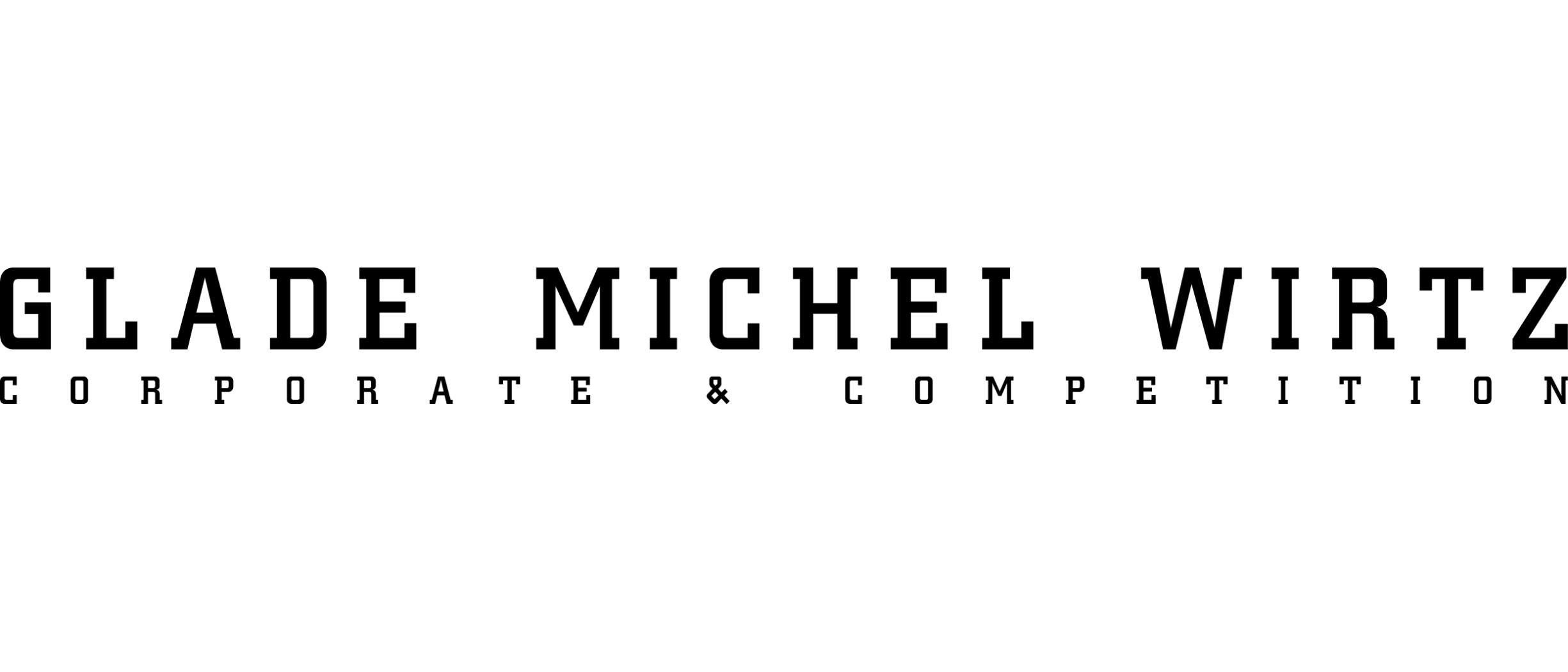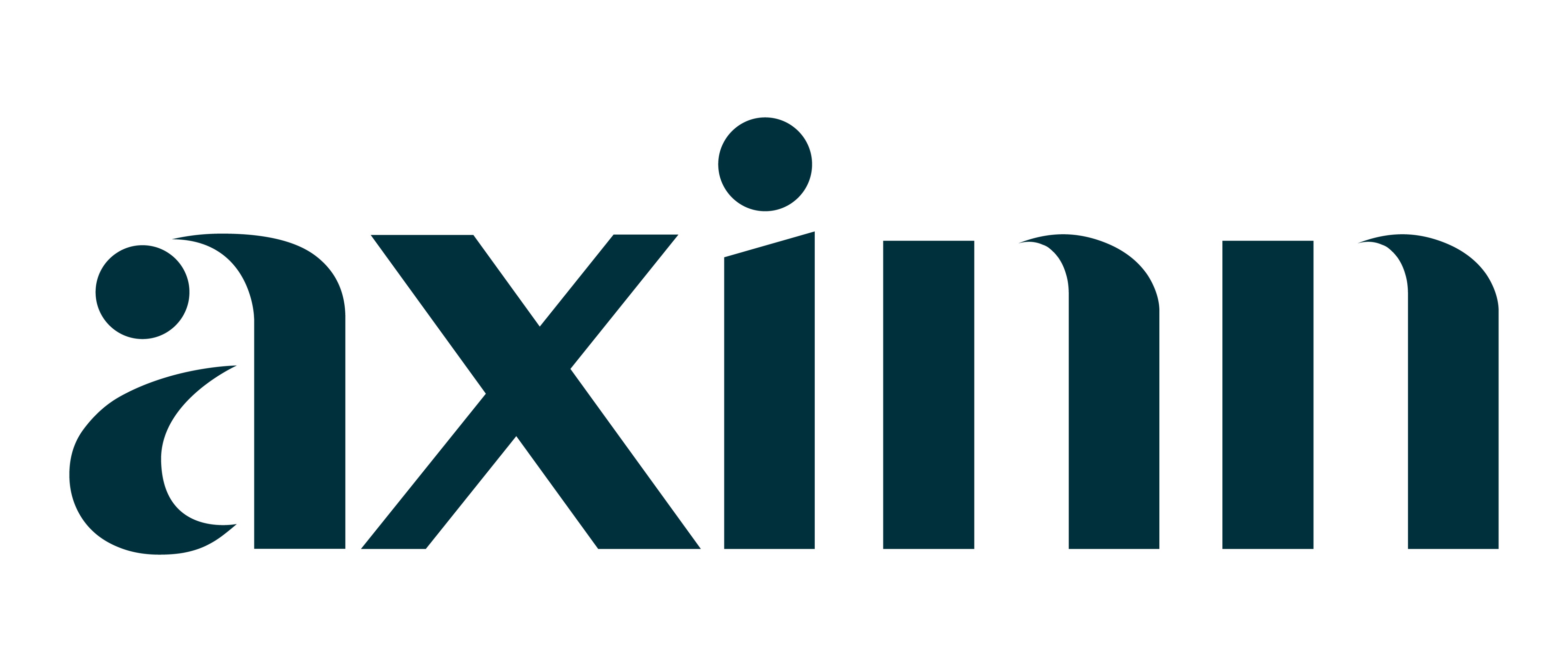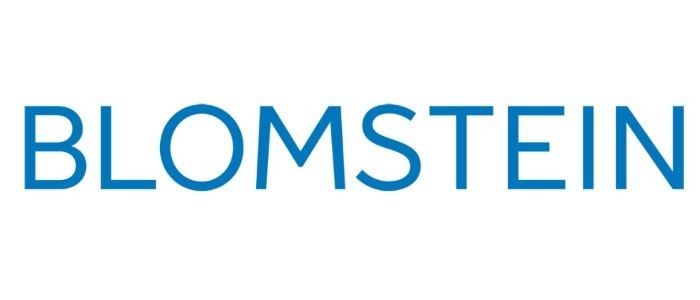
Energizing Tomorrow: The Future of Energy, Antitrust & International Business Law
Dusseldorf, Germany
08 October 2026 - 10 October 2026
Antitrust
Thursday 08 October 2026 | |
| 17:45 | Registrations open in Hotel Kö59 Düsseldorf
|
| 18:00 » 20:00 | Welcome reception in Hotel Kö59 Düsseldorf
|
| 20:00 | Optional dinner |
Friday 09 October 2026 | |
| 08:30 | Registrations open in Hotel Kö59 Düsseldorf
|
| 09:00 » 09:30 | JOINT Welcome address By the AIJA Bureau Representative, the Commission Officers and the Organizing Committee |
| 09:30 » 10:00 | JOINT Keynote speech |
| 10:00 » 11:00 | The Next Wave of Tech Enforcement: Global Trends in Regulating Platforms and Algorithms Competition authorities worldwide are intensifying their focus on the digital economy, with platforms and algorithmic tools at the center of regulatory reform and enforcement. The regulation of digital platforms and algorithmic pricing tools is emerging as one of the defining challenges of modern competition law. Across jurisdictions, authorities are experimenting with novel frameworks—the EU’s DMA, the UK’s DMCC, and evolving theories of harm in the courts in the U.S.—that go beyond traditional antitrust enforcement. Companies face an unprecedented wave of obligations and potential liabilities in this fast-moving space. This session will chart the evolving global landscape, highlighting how authorities are targeting algorithmic pricing practices, self-preferencing, and other forms of alleged dominance abuse. Panelists will compare approaches across key jurisdictions, offering insight into how divergent rules are reshaping compliance strategies for multinational firms. The discussion will also address how enforcers are testing new remedies, expanding theories of harm, and experimenting with forward-looking regulations that may serve as models for others. By bringing together perspectives from both regulators and practitioners, this session will help participants anticipate where enforcement is headed and how to advise clients navigating overlapping—and sometimes conflicting—legal regimes. Attendees will leave with a practical understanding of how global enforcement trends are converging and diverging, what this means for platform regulation and algorithmic conduct, and how businesses can prepare for the next wave of digital scrutiny. |
| 11:00 » 11:30 | Coffee Break |
| 11:30 » 12:30 | JOINT SESSION Antitrust/IBL- Pitfalls of International Transactions in an Increasingly Complex Regulatory Landscape As global transactions face mounting regulatory scrutiny, navigating the intersection of foreign direct investment (FDI) and merger control regimes has become increasingly treacherous. This panel will examine critical coordination challenges that arise when deals trigger multiple notification requirements across jurisdictions, exploring how timing misalignments, conflicting substantive standards, and procedural inconsistencies can endanger even well-planned transactions. The discussion will address emerging trends reshaping the landscape, including the expansion of FDI screening to cover minority investments and technology transfers that may fall below merger control thresholds, creating new coordination blind spots for practitioners. Key considerations include structuring conditions precedent to manage overlapping approval requirements and mitigate regulatory timing risks. Attendees will gain actionable insights for structuring transactions and crafting notification strategies that account for the evolving interplay between these critical regulatory frameworks. |
| 12:30 » 14:30 | Lunch Break |
| 13:45 » 14:30 | Commission Meeting |
| 14:30 » 15:45 | JOINT SESSION Antitrust/EEL - Green Alliances: Navigating Competition Law in Sustainability Cooperation As sustainability imperatives drive unprecedented industry collaboration, competition lawyers face the challenge of structuring legitimate environmental partnerships without crossing antitrust red lines. This panel will examine practical frameworks for navigating the tension between collective climate action and competitive autonomy, moving beyond theoretical discussions to explore real-world structures that have successfully withstood regulatory scrutiny. Drawing on recent developments including the updated EU Horizontal Guidelines, panelists will analyze how sustainability efficiencies are being assessed by competition authorities and demonstrate through actual use cases how companies are designing compliant cooperation mechanisms. This session will thus equip both antitrust and energy practitioners with actionable strategies for advising clients on genuine sustainability collaborations. |
| 15:45 » 16:15 | Coffee Break |
| 16:15 » 17:30 | No-Poach: Antitrust in Labor Markets – Enforcement Trends Around Wage-Fixing and Labor Mobility Labor market antitrust enforcement has moved from the periphery to the spotlight. In recent years, agencies across the globe have intensified their scrutiny of wage-fixing, no-poach agreements, and other practices perceived to restrict worker mobility. With the United States DOJ and FTC ramping up investigations into no-poach and wage-fixing agreements, and global counterparts adopting similar priorities, employers face heightened risk when addressing employee retention, recruitment, and compensation strategies. Courts and regulators are now wrestling with how to apply competition law to employer conduct, raising fundamental questions about the reach of antitrust in labor markets. This session will take a practical look at compliance in this evolving landscape, and examine recent enforcement actions and policy shifts, including criminal prosecutions in the U.S., civil enforcement in Europe, and growing interest in labor market remedies in merger review. Panelists will analyze lessons learned from recent criminal and civil cases, explore how enforcers are framing these cases, the evidentiary challenges they face, and the implications for businesses navigating complex employment relationships. Attendees will gain a deeper understanding of how labor markets are shaping the future of antitrust enforcement and what companies should do now to mitigate risk while maintaining lawful talent strategies, while leaving with practical tools for counseling clients and designing compliance programs that protect both competitive talent practices and the business from costly enforcement actions. By situating recent cases within broader economic and legal debates, this discussion will help attendees understand not only where enforcement is headed but also how it may reshape the goals and scope of antitrust itself. |
| 19:00 | Dinner |
Saturday 10 October 2026 | |
| 09:00 | Registrations open in Hotel Kö59 Düsseldorf
|
| 09:30 » 11:00 | JOINT SESSION - Global Supply Chain Disruptions: Force Majeure, Renegotiation Clauses, Contractual Resilience, and Antitrust Implications Global supply chains are under mounting pressure from geopolitical tensions, pandemics, trade restrictions, climate events, and other systemic shocks. These disruptions are testing the durability of cross-border contracts and forcing businesses to reassess how they allocate risk and maintain continuity in volatile markets. This session will bring together perspectives from multiple practice areas to explore how lawyers can strengthen contractual resilience and avoid antitrust risk. Panelists will examine the drafting and application of force majeure and renegotiation clauses, approaches to dispute resolution in times of crisis, and the antitrust considerations that arise when competitors coordinate responses to supply chain disruption. Drawing on lessons from recent global crises, the discussion will focus on practical strategies to safeguard transactions against unpredictability and to build more adaptive supply contracts for the future. Attendees will leave with actionable tools for advising clients on how to manage contractual and antitrust risk in an increasingly fragmented and unstable trade environment. |
| 11:00 » 11:30 | Coffee Break |
| 11:30 » 13:00 | JOINT SESSION - Inside the Mind of a Whistleblower Perspectives on Disclosure, Enforcement, and Compliance Few forces have reshaped corporate enforcement landscapes as dramatically as whistleblowers. Whether uncovering cartel conduct, corporate fraud or workplace misconduct, individuals who come forward play a decisive role in triggering investigations and shaping outcomes. This session will explore the whistleblower experience from multiple vantage points – offering insights into what motivates individuals to act, how regulators respond, and what companies can do to both prevent misconduct and manage disclosures when they arise. Attendees will gain a richer understanding of the evolving whistleblower landscape learning not only how to respond effectively when allegations surface, but also how to build systems that balance compliance, ethics and trust. |
| 13:00 » 13:15 | Closing remarks |
| 13:15 » 15:15 | Lunch |
| 16:00 | Optional activity |
| 17:00 | Optional Dinner |
Energy And Environment Law
Thursday 08 October 2026 | |
| 17:45 | Registrations open in Hotel Kö59 Düsseldorf
|
| 18:00 » 20:00 | Welcome reception in Hotel Kö59 Düsseldorf
|
| 20:00 | Optional dinner |
Friday 09 October 2026 | |
| 08:30 | Registrations open in Hotel Kö59 Düsseldorf
|
| 09:00 » 09:30 | JOINT Welcome address By the AIJA Bureau Representative, the Commission Officers and the Organizing Committee |
| 09:30 » 10:00 | JOINT Keynote speech |
| 10:00 » 11:00 | JOINT SESSION EEL + IBL: Contracting for the Energy Transition: How to Draft and Negotiate Green Investment Agreements As the global shift towards clean energy accelerates, investment contracts are becoming a key battleground for risk allocation, compliance, and innovation. Lawyers are increasingly called upon to design agreements that not only attract sustainable financing but also navigate regulatory uncertainty and deliver long-term stability. This session will explore how contractual frameworks are evolving in renewable energy projects and cross-border infrastructure investments. Panelists will examine practical tools for allocating risk, structuring conditions precedent, and addressing compliance with emerging climate policies, while also considering pitfalls that can undermine project bankability. Participants will leave with a clearer understanding of how to draft and negotiate agreements that support the energy transition—agreements that are resilient to changing policy frameworks while still meeting investor expectations. |
| 11:00 » 11:30 | Coffee Break |
| 11:30 » 12:30 | Between Acceleration and Regulation: The Legal Framework of Renewable Energy Expansion As the push for renewable energy intensifies, legal systems are under pressure to reconcile the need for speed with the imperative of legal and environmental safeguards. This panel will explore the evolving legal framework shaping the expansion of renewables, focusing on the growing tension between accelerated deployment and robust regulatory oversight. The discussion will examine key mechanisms such as fast-track permitting procedures, streamlined environmental assessments, and recent EU and national reforms aimed at enhancing legal certainty while preserving public participation and environmental integrity. Particular attention will be given to the practical challenges of implementing these frameworks and the legal frictions that arise in balancing ambitious climate goals with rule-of-law principles. Discussions will focus in particular on the practical challenges of legal implementation and potential approaches to reform. |
| 12:30 » 14:30 | Lunch Break |
| 13:45 » 14:30 | Commission Meeting |
| 14:30 » 15:45 | JOINT SESSION Antitrust/EEL - Green Alliances: Navigating Competition Law in Sustainability Cooperation As sustainability imperatives drive unprecedented industry collaboration, competition lawyers face the challenge of structuring legitimate environmental partnerships without crossing antitrust red lines. This panel will examine practical frameworks for navigating the tension between collective climate action and competitive autonomy, moving beyond theoretical discussions to explore real-world structures that have successfully withstood regulatory scrutiny. Drawing on recent developments including the updated EU Horizontal Guidelines, panelists will analyze how sustainability efficiencies are being assessed by competition authorities and demonstrate through actual use cases how companies are designing compliant cooperation mechanisms. This session will thus equip both antitrust and energy practitioners with actionable strategies for advising clients on genuine sustainability collaborations. |
| 15:45 » 16:15 | Coffee Break |
| 16:15 » 17:30 | JOINT SESSION EEL/IBL - Carbon Capture, Hydrogen & New Energy Frontiers: Legal Challenges in Developing Next-Gen Infrastructure As the energy transition accelerates, carbon capture and storage, hydrogen, and other next-generation technologies are moving to the forefront of infrastructure development - yet legal frameworks often lag behind. This panel will examine the key legal and regulatory challenges facing the deployment of these technologies, with a focus on permitting obstacles, regulatory uncertainty, and jurisdictional fragmentation. The discussion will explore how gaps and inconsistencies in domestic and cross-border legal regimes complicate project planning and execution, particularly for infrastructure that spans multiple countries or legal systems. Emerging trends such as the classification of hydrogen types, liability issues in long-term CO₂ storage, and the intersection with climate and energy policy frameworks will be addressed. Key considerations include designing legally viable project structures in an uncertain regulatory environment and aligning national and international permitting processes to reduce legal and timing risks. Attendees will gain comparative insights into evolving legal models and their practical implications for stakeholders seeking to advance next-gen energy infrastructure projects |
| 19:00 | Dinner |
Saturday 10 October 2026 | |
| 09:00 | Registrations open in Hotel Kö59 Düsseldorf
|
| 09:30 » 11:00 | JOINT SESSION - Global Supply Chain Disruptions: Force Majeure, Renegotiation Clauses, Contractual Resilience, and Antitrust Implications Global supply chains are under mounting pressure from geopolitical tensions, pandemics, trade restrictions, climate events, and other systemic shocks. These disruptions are testing the durability of cross-border contracts and forcing businesses to reassess how they allocate risk and maintain continuity in volatile markets. This session will bring together perspectives from multiple practice areas to explore how lawyers can strengthen contractual resilience and avoid antitrust risk. Panelists will examine the drafting and application of force majeure and renegotiation clauses, approaches to dispute resolution in times of crisis, and the antitrust considerations that arise when competitors coordinate responses to supply chain disruption. Drawing on lessons from recent global crises, the discussion will focus on practical strategies to safeguard transactions against unpredictability and to build more adaptive supply contracts for the future. Attendees will leave with actionable tools for advising clients on how to manage contractual and antitrust risk in an increasingly fragmented and unstable trade environment. |
| 11:00 » 11:30 | Coffee Break |
| 11:30 » 13:00 | JOINT SESSION - Inside the Mind of a Whistleblower Perspectives on Disclosure, Enforcement, and Compliance Few forces have reshaped corporate enforcement landscapes as dramatically as whistleblowers. Whether uncovering cartel conduct, corporate fraud or workplace misconduct, individuals who come forward play a decisive role in triggering investigations and shaping outcomes. This session will explore the whistleblower experience from multiple vantage points – offering insights into what motivates individuals to act, how regulators respond, and what companies can do to both prevent misconduct and manage disclosures when they arise. Attendees will gain a richer understanding of the evolving whistleblower landscape learning not only how to respond effectively when allegations surface, but also how to build systems that balance compliance, ethics and trust. |
| 13:00 » 13:15 | Closing remarks |
| 13:15 » 15:15 | Lunch |
| 16:00 | Optional Activity |
| 19:00 | Optional Dinner |
International Business Law
Thursday 08 October 2026 | |
| 17:45 | Registrations open in Hotel Kö59 Düsseldorf
|
| 18:00 » 20:00 | Welcome reception in Hotel Kö59 Düsseldorf
|
| 20:00 | Optional dinner |
Friday 09 October 2026 | |
| 08:30 | Registrations open in Hotel Kö59 Düsseldorf
|
| 09:00 » 09:30 | JOINT Welcome address By the AIJA Bureau Representative, the Commission Officers and the Organizing Committee |
| 09:30 » 10:00 | JOINT Keynote speech |
| 10:00 » 11:00 | JOINT SESSION EEL + IBL: Contracting for the Energy Transition: How to Draft and Negotiate Green Investment Agreements As the global shift towards clean energy accelerates, investment contracts are becoming a key battleground for risk allocation, compliance, and innovation. Lawyers are increasingly called upon to design agreements that not only attract sustainable financing but also navigate regulatory uncertainty and deliver long-term stability. This session will explore how contractual frameworks are evolving in renewable energy projects and cross-border infrastructure investments. Panelists will examine practical tools for allocating risk, structuring conditions precedent, and addressing compliance with emerging climate policies, while also considering pitfalls that can undermine project bankability. Participants will leave with a clearer understanding of how to draft and negotiate agreements that support the energy transition—agreements that are resilient to changing policy frameworks while still meeting investor expectations. |
| 11:00 » 11:30 | Coffee Break |
| 11:30 » 12:30 | JOINT SESSION Antitrust/IBL - Pitfalls of International Transactions in an Increasingly Complex Regulatory Landscape As global transactions face mounting regulatory scrutiny, navigating the intersection of foreign direct investment (FDI) and merger control regimes has become increasingly treacherous. This panel will examine critical coordination challenges that arise when deals trigger multiple notification requirements across jurisdictions, exploring how timing misalignments, conflicting substantive standards, and procedural inconsistencies can endanger even well-planned transactions. The discussion will address emerging trends reshaping the landscape, including the expansion of FDI screening to cover minority investments and technology transfers that may fall below merger control thresholds, creating new coordination blind spots for practitioners. Key considerations include structuring conditions precedent to manage overlapping approval requirements and mitigate regulatory timing risks. Attendees will gain actionable insights for structuring transactions and crafting notification strategies that account for the evolving interplay between these critical regulatory frameworks. |
| 12:30 » 14:30 | Lunch Break |
| 14:30 » 15:45 | Cross-Border Contracts in Turbulent Times: Legal Strategies for Sanctions and Instability Geopolitical volatility, shifting regulatory frameworks, and the intensification of current sanctions enforcement are adding unprecedented complexity to cross-border transactions. For international business lawyers, these risks are no longer peripheral—they are reshaping how contracts are drafted, negotiated, and enforced. Unlike historical or academic discussions of sanctions, this session will focus on the practical implications of today’s rapidly evolving regimes and their direct impact on deal-making. This panel will explore how contracts are adapting to address contemporary risks, including tailored sanctions and export control clauses, enhanced compliance and due diligence obligations, and the allocation of regulatory exposure between parties. The discussion will also consider how force majeure, material adverse change (MAC), and termination provisions are being redefined in response to political and economic instability, and how governing law and dispute resolution choices can mitigate uncertainty across divergent jurisdictions. By emphasizing concrete contractual techniques, this session will provide participants with tools to address live challenges in the current risk environment. Attendees will leave with a sharper understanding of how to integrate sanctions and political risk into contract design, and with practical approaches to safeguard transactions in today’s volatile markets. |
| 15:45 » 16:15 | Coffee Break |
| 16:15 » 17:30 | JOINT SESSION EEL/IBL - Carbon Capture, Hydrogen & New Energy Frontiers: Legal Challenges in Developing Next-Gen Infrastructure As the energy transition accelerates, carbon capture and storage, hydrogen, and other next-generation technologies are moving to the forefront of infrastructure development - yet legal frameworks often lag behind. This panel will examine the key legal and regulatory challenges facing the deployment of these technologies, with a focus on permitting obstacles, regulatory uncertainty, and jurisdictional fragmentation. The discussion will explore how gaps and inconsistencies in domestic and cross-border legal regimes complicate project planning and execution, particularly for infrastructure that spans multiple countries or legal systems. Emerging trends such as the classification of hydrogen types, liability issues in long-term CO₂ storage, and the intersection with climate and energy policy frameworks will be addressed. Key considerations include designing legally viable project structures in an uncertain regulatory environment and aligning national and international permitting processes to reduce legal and timing risks. Attendees will gain comparative insights into evolving legal models and their practical implications for stakeholders seeking to advance next-gen energy infrastructure projects |
| 17:30 » 18:00 | Commission meeting |
| 19:00 | Dinner |
Saturday 10 October 2026 | |
| 09:00 | Registrations open in Hotel Kö59 Düsseldorf
|
| 09:30 » 11:00 | JOINT SESSION - Global Supply Chain Disruptions: Force Majeure, Renegotiation Clauses, Contractual Resilience, and Antitrust Implications Global supply chains are under mounting pressure from geopolitical tensions, pandemics, trade restrictions, climate events, and other systemic shocks. These disruptions are testing the durability of cross-border contracts and forcing businesses to reassess how they allocate risk and maintain continuity in volatile markets. This session will bring together perspectives from multiple practice areas to explore how lawyers can strengthen contractual resilience and avoid antitrust risk. Panelists will examine the drafting and application of force majeure and renegotiation clauses, approaches to dispute resolution in times of crisis, and the antitrust considerations that arise when competitors coordinate responses to supply chain disruption. Drawing on lessons from recent global crises, the discussion will focus on practical strategies to safeguard transactions against unpredictability and to build more adaptive supply contracts for the future. Attendees will leave with actionable tools for advising clients on how to manage contractual and antitrust risk in an increasingly fragmented and unstable trade environment. |
| 11:00 » 11:30 | Coffee Break |
| 11:30 » 13:00 | JOINT SESSION - Inside the Mind of a Whistleblower Perspectives on Disclosure, Enforcement, and Compliance Few forces have reshaped corporate enforcement landscapes as dramatically as whistleblowers. Whether uncovering cartel conduct, corporate fraud or workplace misconduct, individuals who come forward play a decisive role in triggering investigations and shaping outcomes. This session will explore the whistleblower experience from multiple vantage points – offering insights into what motivates individuals to act, how regulators respond, and what companies can do to both prevent misconduct and manage disclosures when they arise. Attendees will gain a richer understanding of the evolving whistleblower landscape learning not only how to respond effectively when allegations surface, but also how to build systems that balance compliance, ethics and trust. |
| 13:00 » 13:15 | Closing remarks |
| 13:15 » 15:15 | Lunch |
| 16:00 | Optional Activity |
| 19:00 | Optional Dinner |





